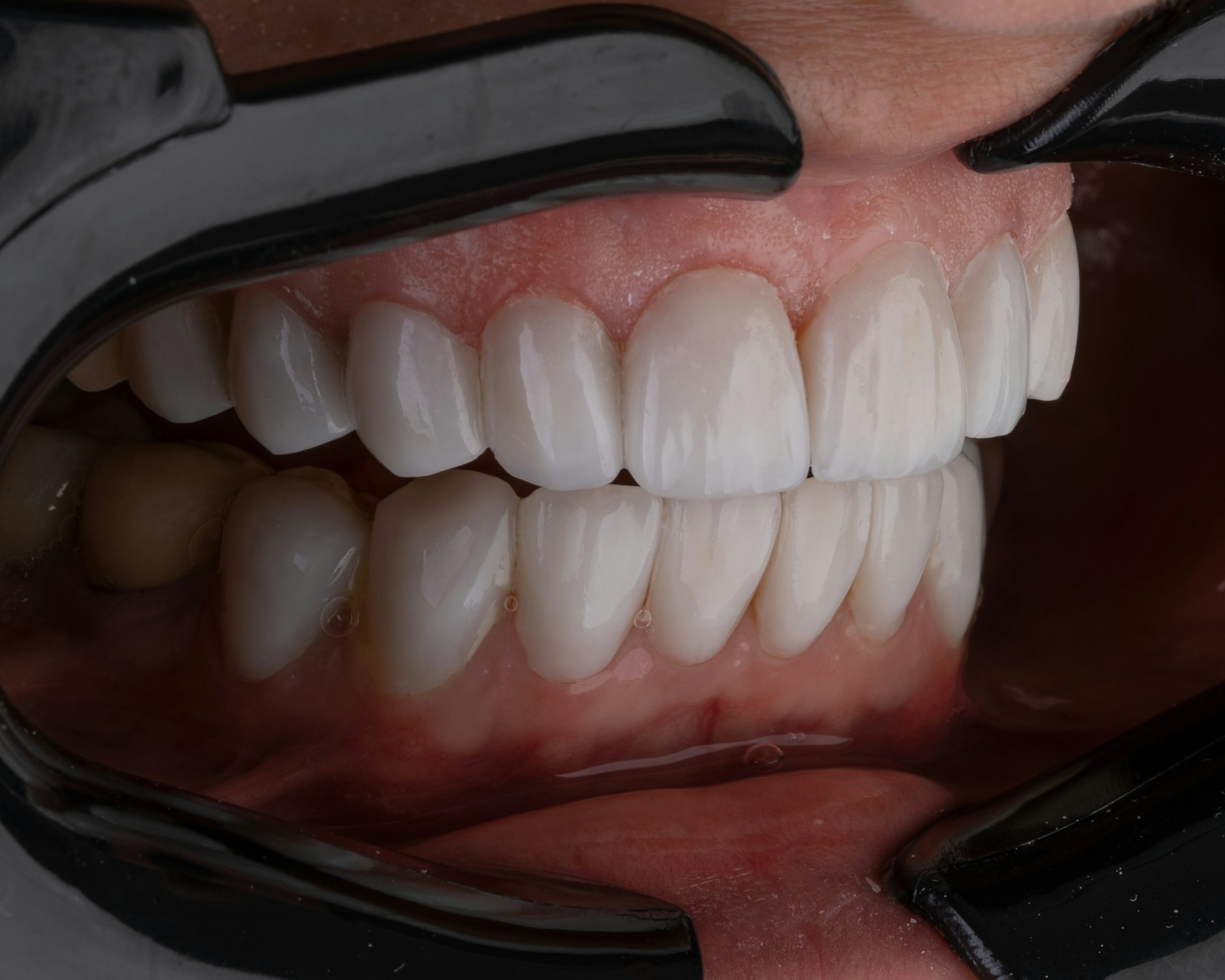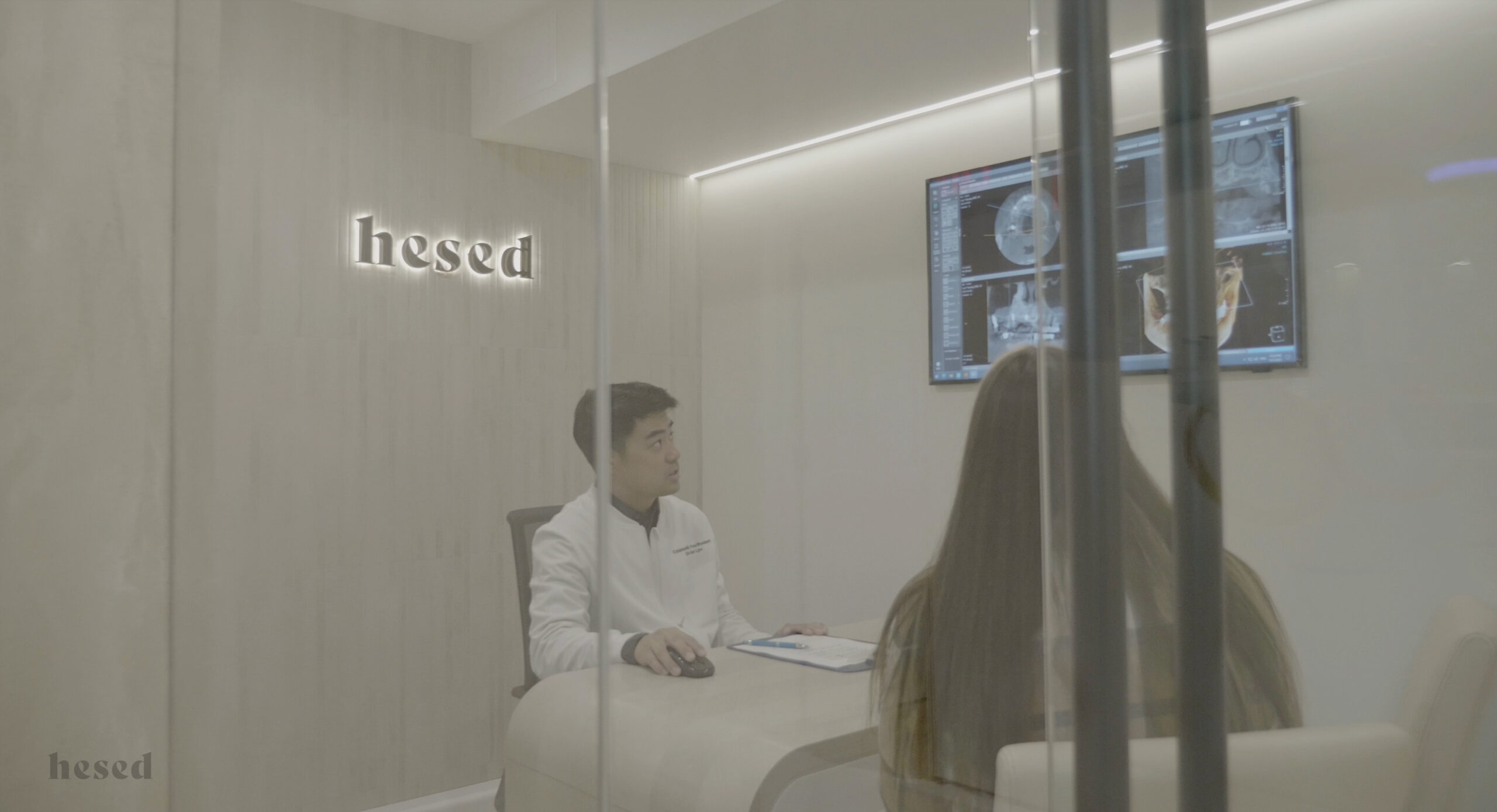Consider full-mouth dental implants if you have multiple missing teeth or your entire arch is tooth-free. Full-mouth dental implants are also called smile-in-a-day or all-on-4 dental implants. The main motive is to restore your ability to perform regular oral function by placing 4 to 6 dental implants.

Full Mouth dental implants are a surgical means of replacing all your missing teeth at once with the support of a fixed prosthesis. They can be placed in the upper, lower, or both (as required). We need a fixed prosthesis to help keep implants in their positions. Dentists or dental implant experts in NJ might utilize either bridges or dentures to improve the efficacy of dental implants.
An ideal candidate for full mouth dental implants will not have any infections or other dental issues that might interfere with the implant placement surgery. It is favorable if the patient is a non-smoker with healthy gums and sufficient jaw bone density to support an implant. Lastly, the dentist must note that the patient maintains oral hygiene. Proper brushing techniques, flossing after meals, and visits to the dentist are essential.
You should get full-mouth dental implants if facing one or more dental challenges:
If you are facing any of the above dental issues or have lost almost all teeth in the upper or lower jaw, you can get full-mouth dental implants.
A total of 12 to 16 implants in the entire mouth or 4 to 8 dental implants in a single arch can be placed depending upon the quality and size of the jaw bone. Later, a fixed prosthesis such as crowns or bridges are placed on these implants. The choice between crown, bridge, and denture varies from patient to patient, depending on their affordability and health conditions.
Full-mouth dental implants in NJ are similar to natural teeth, offering benefits such as effortless chewing of hard and soft foods and the ability to speak without a lisp. Individuals can enjoy long-term aesthetics. Moreover, these implants help to reestablish the jawbone, which might have been lost due to tooth loss. This restores the smile, oral health, and overall well-being.
The procedure begins with a comprehensive dental assessment to examine the gaps between the teeth and formulate an ideal treatment plan. After this first phase, patients will get scheduled appointments for implant placement.
On the appointment day, local anesthesia is injected to minimize pain sensations as much as possible. A bone graft might be required to have the jaw essential for dental implants in patients who lack adequate bone. Once that is done, the oral surgeons place the implants in the bones.
A follow-up visit will involve attaching abutments (an attachment between implant and prosthesis) to the implants, allowing the dental crown, bridge, or denture placement to be made. Therefore, the patient’s oral functions are fully restored.
The time frame of initial healing can vary between 7 and 10 days, depending on the implants’ quality and size. Most patients will require up to eight months to recover fully from this procedure. However, some people will take longer than others, particularly if they need specific procedures or have diseases that must be treated before the operation.
The implant’s integration within the bone (i.e., osseointegration) marks the completion of healing. Your diet and lifestyle directly affect the healing of dental implants. Eating and drinking full of nutritious foods like milk, meat, and supplements is essential.
The procedure is not painful because anesthesia is used. The patient might feel pressure but not pain. Before the treatment, your specialist will decide which choice is best for you, whether a local anesthetic, sedation, or general anesthesia.
You may still have some pain and soreness near the implant site after 3-7 days. Depending on your health condition, your dentist might prescribe painkillers like ibuprofen, paracetamol or naproxen to deal with the pain and discomfort. However, it will become bearable and slightly more comfortable.
Proper dental hygiene practices are essential for maintaining dental implants. Brushing your teeth at least twice a day lowers your risk of plaque accumulation, cavities, and gum disease. Furthermore, flossing once a day is crucial for cleaning the spaces between teeth and implants that a toothbrush cannot reach to get rid of plaque and food particles.
After brushing and flossing, consider a mouth rinse to improve your dental hygiene regimen even more. For rinsing, you can put a pinch of salt in lukewarm water and rinse twice or thrice daily. You can ensure that your mouth is cleaner and fresher and your smile is brighter by implementing these accessible practices into your everyday routine.
Full-mouth dental implants cost $28,000+. The cost depends upon:

This article has comprehensively addressed all the significant aspects of full-mouth dental implants. The feel of full-mouth dental implants within the mouth is very similar to natural teeth. Their efficacy and longevity are commendable.
Full-mouth dental implants restore oral functions of speech and eating confidently without worrying about your appearance. Contact Hesed Dental for economical and highly quality full-mouth dental implants today!

Hesed Dental 543 Gorge Road Cliffside Park, NJ 07010
201 941 8877